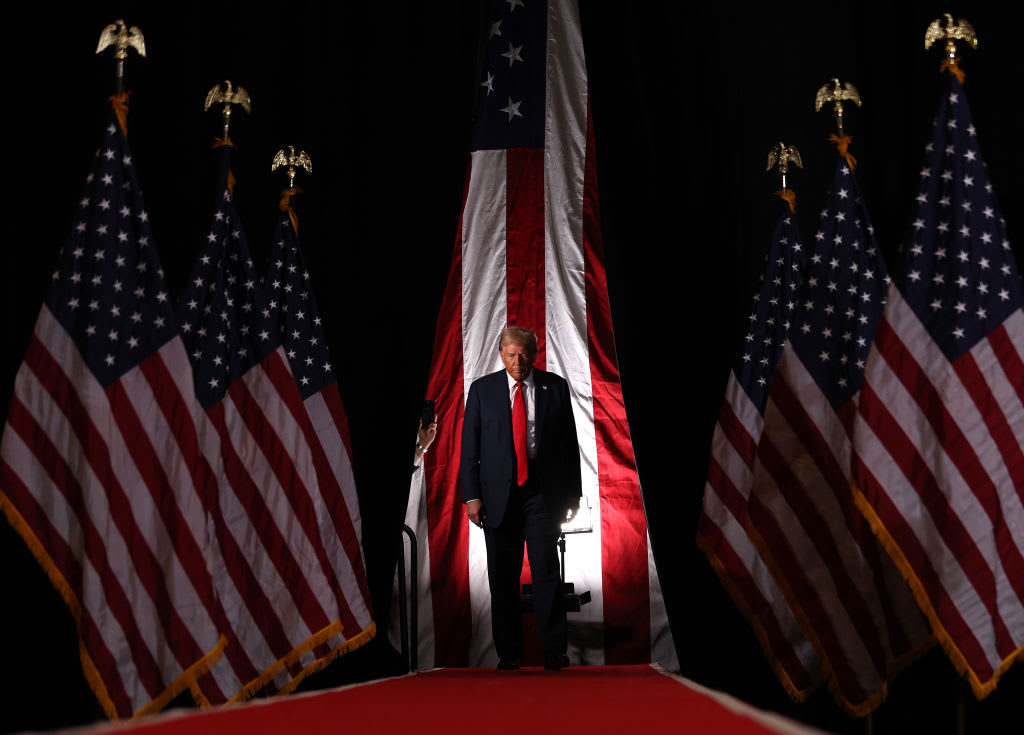FTC moves to block $69 billion Microsoft-Activision deal
Federal regulators are seeking to block Microsoft's proposed purchase of video game powerhouse Activision Blizzard, the Federal Trade Commission said Thursday. The $69 billion deal — the largest ever for Microsoft and for the gaming industry as a whole — would undermine competition for the software giant's Xbox gaming console, the agency said.
"Microsoft has already shown that it can and will withhold content from its gaming rivals," Holly Vedova, director of the FTC's Bureau of Competition, said in a statement.
The FTC cited Microsoft's recent purchase of ZeniMax, parent company of software developer Bethesda Softworks, after which Microsoft decided to make several Bethesda titles, including Starfield and Redfall, exclusive to its consoles.
The FTC voted 3-1 to file a lawsuit to stop the deal, with the three Democratic commissioners voting in favor and the sole Republican voting against. A fifth seat on the panel is vacant after another Republican left earlier this year.
The FTC noted that Activision, maker of bestselling games such as Call of Duty and World of Warcraft, was among "a very small number of top video game developers" that publish titles for multiple devices, including consoles, PCs and mobile. Globally, some 154 million people play the company's games every month, the FTC said.
With Microsoft in control of Activision, the software maker "would have both the means and incentive" to raise prices, issue lower-quality games or keep content off other platforms altogether, the agency said.
Microsoft defended the transaction, saying in a statement that the deal "will expand competition and create more opportunities for gamers and game developers."
"While we believed in giving peace a chance, we have complete confidence in our case and welcome the opportunity to present our case in court," the statement said.
Activision CEO Bobby Kotick express confidence the companies would prevail in court and complete the deal. "The allegation that this deal is anti-competitive doesn't align with the facts, and we believe we'll win this challenge," he said in a statement.
"Dodgy deals"
The Biden administration has emphasized the importance of competition in the economy. Current antitrust leaders "have staked out the view that for decades merger policy has been too weak and they've said, repeatedly, 'We're changing that,'" William Kovacic, a former chair of the FTC, told the Associated Press.
The goal is to "not allow dodgy deals and not accept weak settlements," said Kovacic, who was a Republican commissioner appointed in 2006 by then-President George W. Bush. But he said Microsoft has a good chance of winning its legal challenge.
"It's evident that the company has been making a number of concessions," he said. "Microsoft would likely raise them in court and say the FTC is being incorrigibly stubborn about this."
Microsoft announced the merger deal in January but faced months of resistance from Sony, which makes the competing PlayStation console and has raised concerns with antitrust watchdogs that it would lose access to popular Activision Blizzard game franchises such as Call of Duty.
The company's latest concession, announced Wednesday, was to make Call of Duty available on Nintendo devices for 10 years should its acquisition go through. It has said it tried to offer the same commitment to Sony.
Union friendly?
In an appeal to Biden administration priorities, Microsoft has also sought to characterize its deal as worker-friendly after announcing a "labor neutrality agreement" in June with the Communications Workers of America that would allow workers to unionize after the acquisition closes.
Technology companies historically have shown little support for employees seeking to organize. Workers at two Activision Blizzard divisions also recently voted to unionize, but the company has fought those efforts.
In a statement, the CWA said allowing the deal to close "would have sent a game-changing message to corporate America that workers do indeed have a seat at the table and their concerns matter and must be addressed."
"Workers across the country, including in the video game industry, understand that one of the most effective ways to fight consolidated corporate power is to consolidate their own power by joining together in unions," the CWA said.
The deal is also under close scrutiny in the European Union and the United Kingdom, where investigations aren't due to be completed until next year.
The Associated Press contributed reporting.



